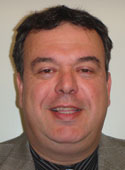By Micha Shalev
Hospitals have the ability to classify Medicare patients as an observation admission during the patients’ stay. Observation admissions are apparently paid at a lower rate, but don’t come under as much Medicare scrutiny. Additionally, under Medicare rules, observation patients may have to pay a 20 percent co-payment that wouldn’t be required if they were admitted. Medicare observation patients also have to pay full price for any subsequent care that is rendered after they have been discharged.
Also note how Medicare is planning to penalize hospitals that re-admit too many patients, which will only increase the number of patients classified as observation status.
 Observation services are defined in the Medicare’s manual as: A well-defined set of specific, clinically appropriate services, which include ongoing short term treatment, assessment and reassessment, that are furnished while a decision is being made regarding whether patients will require further treatment as hospital inpatients or if they are able to be discharged from the hospital.
Observation services are defined in the Medicare’s manual as: A well-defined set of specific, clinically appropriate services, which include ongoing short term treatment, assessment and reassessment, that are furnished while a decision is being made regarding whether patients will require further treatment as hospital inpatients or if they are able to be discharged from the hospital.
The manual suggests that a patient may not remain in observation status for more than 24 or 48 hours. Since 2004, The Centers for Medicare & Medicaid Services (CMS) has authorized hospitalization utilization review (UR) committees to change a patient’s status from inpatient to outpatient, retroactively, if: the change is made while the patient is still hospitalized; the hospital has not submitted a claim to Medicare for the inpatient admission; a physician concurs in the UR committee’s decision; and the physician’s concurrence is documented in the patient’s medical record.
CMS anticipated that retroactive reclassifications would occur infrequently, “such as a late-night weekend admission when no case manager is on duty to offer guidance.”
On one hand, hospitals get paid more for admitting Medicare patients. On the other, hospitals could be accused of false claims and penalized for admitting Medicare patients who don’t meet Medicare’s strict admission criteria. Medicare’s recovery audit contractors will be combing through charts because they have a financial incentive to find patients who have been “inappropriately” classified as “admissions.”
So hospitals play it safe and classify more and more Medicare patients as observation status.
Who gets stuck in the middle?
The patients — many of whom worked their lives and paid into a system so that they would have medical care when they reached age 65.
The Center for Medicare Advocacy suggests that beneficiaries file an appeal from any hospital notices describing their observation status and any subsequent Advanced Beneficiary Notice/Notice of Exclusion from Medicare Benefits they receive from a skilled nursing facility. In the likely absence of any notice, particularly from a hospital, the Center recommends that beneficiaries appeal when they receive the Medicare Summary Notice, which sets out all health care services received by a beneficiary in the prior quarter.
In all cases, beneficiaries and their advocates should gather the complete medical records from the hospital to establish the entire set of services and treatments that were received during the period of hospitalization. Advocates should request copies of all documents used by the hospital, its UR committee, and outside consultants to determine beneficiaries’ status.
Advocates should present the medical and nursing facts and cite any physician support for inpatient status to demonstrate that the beneficiary met Medicare’s criteria for an inpatient stay. If skilled nursing facility coverage is also at issue, advocates must demonstrate not only that the beneficiary met the criteria for Medicare-covered care in such a facility but also that the beneficiary received Medicare-covered care there.
Micha Shalev MHA is the owner of Dodge Park Rest Home and The Adult Day Club at Dodge Park located at 101 Randolph Road in Worcester. The facility is holding two FREE support group meetings a month for spouses and children of individuals with dementia and/or Alzheimer’s disease. He can be reached at 508-853-8180 or by e-mail at m.shalev@dodgepark.com or view more information online at www.dodgepark.com. Archives of articles from previous issues can be read at www.fiftyplusadvocate.com.












